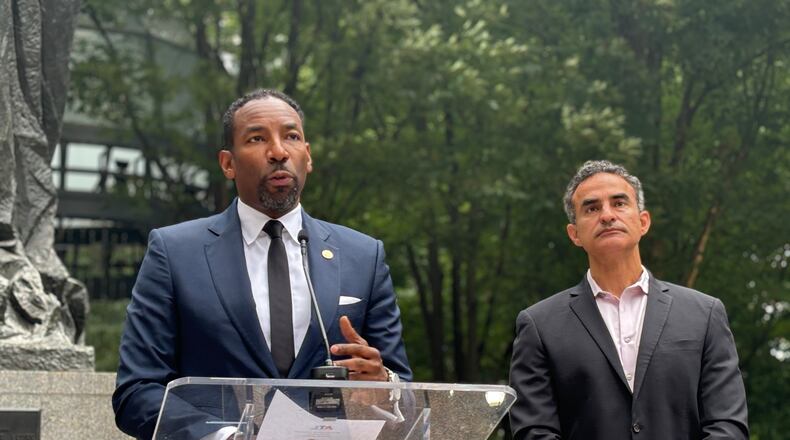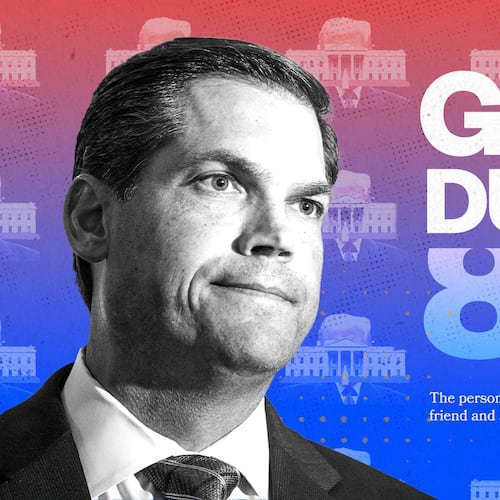Everyone deserves a place to call home. But on any given night in Atlanta, there are approximately 3,000 people experiencing homelessness. When we encounter an experience of homelessness, we are confronted with both an individual crisis and a systemic crisis. What may seem less evident — or, at times, less visible — is the homeless response system at work in our city.
Through strategic coordination and collaboration, the Atlanta Continuum of Care is building a comprehensive emergency response to homelessness in the city of Atlanta. Coordinated by Partners for HOME, the Atlanta CoC is made up of 170-plus stakeholders — from outreach and service providers to shelters and government agencies — that ensure housing opportunities for our unhoused neighbors.
Our emergency response system embraces the evidence-based Housing First model, which is guided by the belief that people first need necessities like food and housing before attending to next-tier needs. Housing First does not mean housing only, though. To achieve lasting self-sufficiency, we ensure that those we serve also receive comprehensive support services, such as substance abuse treatment, mental health counseling and employment services.
Using this approach, we have successfully rehoused 14,000 people in our community since 2017, and 96% of those individuals are still housed.
This progress is a testament to the power of collaboration and compassion, and it proves that the methods, tools and services we are putting to work here in Atlanta are working — and worth celebrating.
Despite this achievement, the number of people experiencing homelessness in Atlanta continues to rise. There are currently more than 4,000 people engaged and receiving support from our response system. In 2023, 1,000 more people entered our system to receive services than in 2022; of those, 800 were experiencing homelessness for the first time.
Why is this number rising? The leading cause of homelessness is an insufficient supply of affordable housing. Homelessness is further compounded by the unique headwinds of this moment: inflation, income inequality, a mental health crisis and other profound effects of the COVID-19 pandemic. Put simply: until we get a hold of our affordable housing crisis in Atlanta, the parallel crisis of homelessness will persist.
But these crises can be addressed — with the right level of resources at the right pace and scale to exit people out of homelessness as quickly as possible. We also need to reach people sooner in their experience to keep them in their homes and off the path toward homelessness.
Right now, for every one person we’re able to rehouse, 2.5 more are becoming homeless. This means we need to rehouse more people faster with increased investment in proven interventions: prevention, diversion, rapid rehousing and permanently supportive housing. We must move like we have not moved before to catch up and then stay ahead.
With an 18% increase in homelessness nationally, this issue is not unique to Atlanta. But Atlanta can be unique in how it unites, innovates and leads with compassion to make sure that all Atlantans have a safe, stable place to call home.
A comprehensive solution requires comprehensive support. Pandemic stimulus funds gave us a proof point that with the right level of investment, our providers can rehouse more people faster. Under the leadership of Mayor Andre Dickens, the city of Atlanta recently made a historic $60 million commitment to permanent solutions toward addressing homelessness — which has already resulted in rapid housing successes like The Melody (40 units); 729 Bonaventure Ave. NE (23 units); the Ralph David House at 277 Moreland Ave. (56 units); and soon the Waterworks site (100 units, including 30 medical/mental health care units) — but it will take the public and private sectors coming together to make a lasting difference.
We invite corporate, government, philanthropic and other partners and regional governments to join us in this commitment to our community. Learn more and get involved by visiting us at partnersforhome.org.
These leaders and their organizations have united under our shared mission to ensure every Atlantan has a safe and stable place to call home:
- Leonard Adams, President and CEO - Quest Community Development Corporation;
- Zina Age, Executive Director – Aniz;
- Katha Blackwell, President and CEO – PADV;
- Carol Collard, President and CEO – CaringWorks;
- Dr. Alie Redd, Chief Executive Officer - Covenant House Georgia;
- Julio Carrillo, CEO - Hope Atlanta;
- Rev. Tony Johns, Executive Director – Crossroads Community Ministries;
- Chad Jones, VP for Business Development – View Point Health;
- Danny Lester-Drew, Executive Director - Zaban Paradies Center;
- Tyese Lawyer, President and CEO - Our House;
- Terri M. Lee, President and CEO - Atlanta Housing,
- Michael Lucas, Executive Director – AVLF;
- Moki Macias, Executive Director – PAD;
- Major Thomas McWilliams, Metro Atlanta Area Commander - Salvation Army;
- Arthur Murray, Executive Director - Step Up on Second;
- Anne Hernandez, VP of Behavioral Health – Grady;
- Kathryn Lawler, CEO, Mercy Care;
- Megan VandeBogert, CEO and Executive Director - Hope Thru Soap;
- Margaret Schuelke and Jimiyu Evans, Co-CEOs – PCCI;
- Maxwell Ruppersburg, Community Leader; Brad Schweers, CEO - Intown Cares;
- Terry Tucker, President and CEO - Frontline Response;
- Scott Walker, Executive Director - 3Keys;
- Raphael Holloway, CEO - Gateway Center;
- Jannan Thomas, Executive Director - Nicholas House;
- Matt Hurd, Executive Director - Open Doors;
- Erika Parks, Director of Housing - River Edge Behavioral Health;
- and Cathryn Vassell, CEO - Partners for HOME.
Credit: WILDGRAIN
Credit: WILDGRAIN
Cathryn Vassell is CEO of Partners for HOME.
About the Author
Keep Reading
The Latest
Featured



